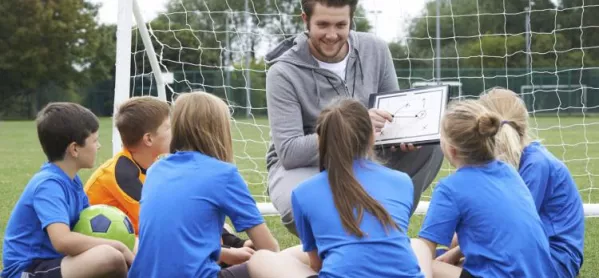A recent tweet from the wonderful Ashley Booth (@MrBoothY6) highlighting that there are significant links between PE lessons and the way we should think about all subjects peaked my interest. In it, he briefly mentions these three links:
-
Being prepared: if the cones are not ready, the kids will go wild.
-
Differentiation: would you stop some children from kicking the ball?
-
Marking and feedback: would you wait until after the lesson to tell the child they are holding the rounders bat incorrectly?
These are all noteworthy points and got me thinking a little more deeply, especially with regards to differentiation and marking.
With teacher workload an obvious hot topic and in keeping with a mastery curriculum, the points above are significant. So what else could we borrow?
Marking and feedback
As in a regular school PE lesson or after-school coaching session, the children will immediately be stopped when the ‘coach’ identifies something worthwhile pointing out - an error/ misconception/ correct technique. They may intervene to provide a correct model for, eg, playing a cricket shot; they may stop the whole group to praise a child for the skill shown; they may question a child on how improvements could be made and provide an additional challenge.
This is the essence of a ‘live marking’ classroom. As the coach would do, teachers (and LSAs) move around the classroom during independent work and mark as they go, providing on the spot feedback: intervention modelling, providing additional challenge, giving prompt questions, allowing time to succeed and praising good examples. All of which is giving ‘in the moment’ rather than waiting until the end of the lesson and, in worse cases, feedback the day or days even after.
Differentiation
In a mastery curriculum, this seems so obvious. Our school, as I’m sure many have, has moved away from ability grouping within class, and this mirrors PE again. Would you set up a game with a ‘top set’ playing a ‘bottom set’, or would you make it fair by creating teams with a mixture of abilities? Would you deny some children the opportunity of having a go at the skill because they are the ‘lowers’? Would you never allow the children to work with different people? Would they stay in same ‘PE team’ they were in in year 1? None of these situations would happen and so they shouldn’t in the classroom.
Ashley’s original tweet had a number of replies. One discussed the point that you wouldn’t tell some children to run slower because they are faster than the others. Another identified correctly an ‘I do- we do’ approach.
And for me, the revelations keep coming. Coaching rugby league gave me a great grounding for moving into teaching.
I would also like to note the importance of using small steps: clearly you would not start the children into a game of hockey without developing all the small steps they would need to succeed.
Additionally, what about variation. Each session, in a unit on, say, tennis would the children be repeating the same activities over and over or would they be varied? Spotting similarities and differences, finding different ways, explaining and demonstrating not just regurgitating process, is the way forward.
There are clearly many things we can use from coaching: the crossover to the classroom is clearly apparent and we should use it.
Kevin O’Brien, maths co-ordinator, SLT, year 6 teacher, Merseyside




